The Furniture: Atomic Blonde's Neon Nihilism
 Monday, November 20, 2017 at 1:00PM
Monday, November 20, 2017 at 1:00PM "The Furniture," by Daniel Walber, is our weekly series on Production Design. You can click on the images to see them in magnified detail.
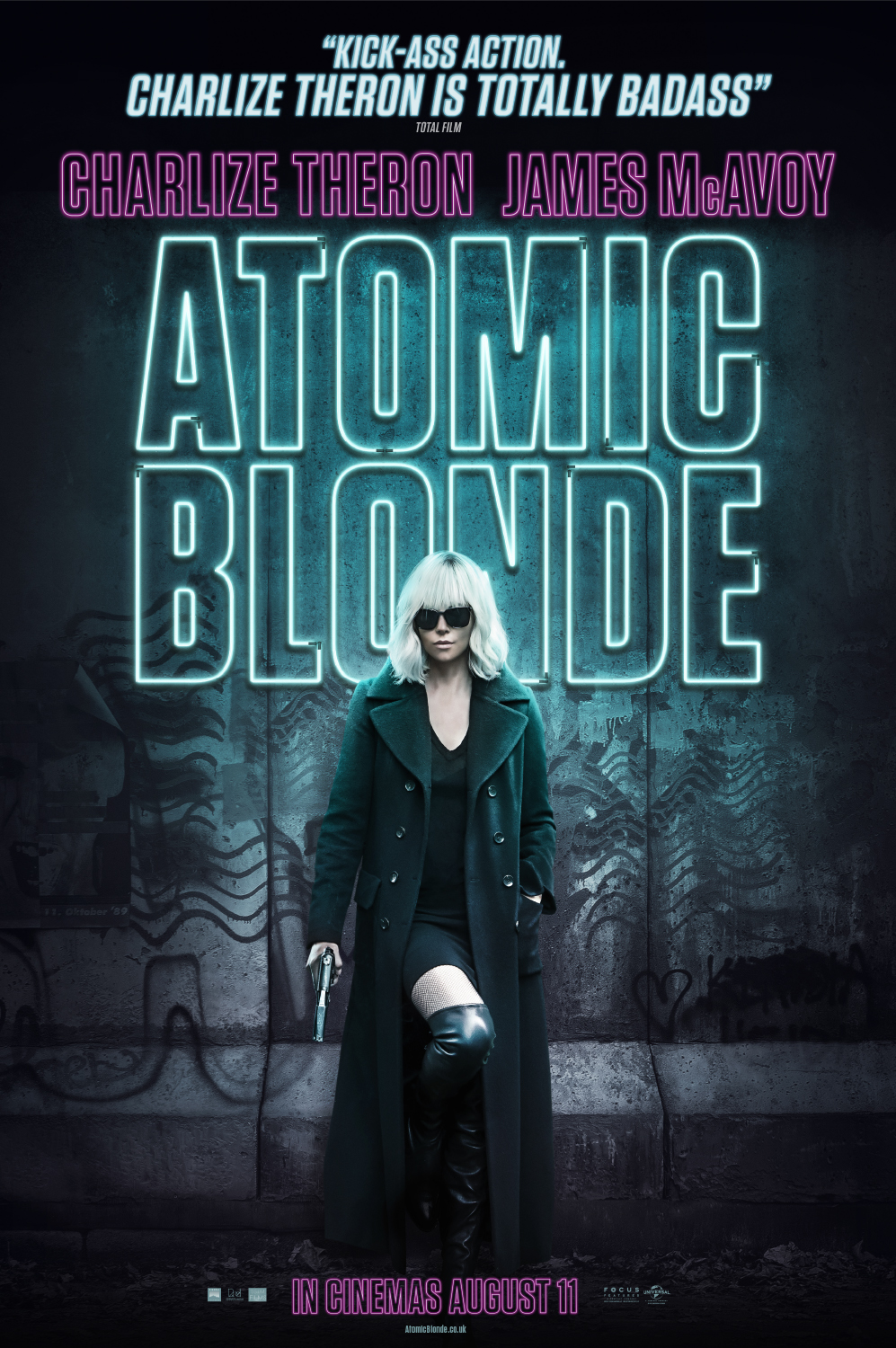 The design of Atomic Blonde is, well, cool. The colors are cool and the vibe is cool, in a very straightforward way. It’s nothing like the characters, who constantly double-cross each other. The twists and turns of this last-minute Cold War spy movie keep coming until its final moments. Everyone is suspicious, even if it’s not obvious.
The design of Atomic Blonde is, well, cool. The colors are cool and the vibe is cool, in a very straightforward way. It’s nothing like the characters, who constantly double-cross each other. The twists and turns of this last-minute Cold War spy movie keep coming until its final moments. Everyone is suspicious, even if it’s not obvious.
Yet the landscape upon which Lorraine (Charlize Theron) and Percival (James McAvoy), the Brits, Americans, French, Russians, West Germans and East Germans play is remarkably uniform. Perhaps this is because the film, directed by David Leitch (John Wick) and written by Kurt Johnstad (300) sees them all as working the same game. It’s a bit like the moral landscape of Sicario, the nihilism of film noir without any of its grand mysteries. The question is no longer “What is evil?” but rather “Why are all these people who signed up for a violent and amoral profession behaving so violently and without morals?”
But that’s another article entirely, a much longer one that cribs from the rant I shouted at the TV immediately upon finishing Atomic Blonde. We’re here to talk about the design, which elegantly underlines this magnificently blunt moral point. Berlin is an abstraction of the Cold War in its last days. It’s a symbol of the international system of spying, in which everyone is a double agent. Everyone can hide in its low, neon lights.
Lorraine’s temporary Berlin apartment is a fantasy of international hotel design with absurd neon accents. There are so many lamps, which are further embellished by the neon lights on the ceiling and the purple glow of the columns. It’s the polar opposite of her home in London, which we see briefly at the beginning of the film.
That said, it also hints that Lorraine’s claim to be a naive newcomer to Berlin is entirely dishonest. She fits right in. One of the lamps even matches her sweater.
And if she’s comfortable here, she’s probably comfortable everywhere in the city. This color palette pops up time and again, most bluntly in the nightclub where she meets up with Delphine (Sofia Boutella). This is especially interesting in the context of the original graphic novel, Antony Johnston’s The Coldest City, which in black and white. This purple and red extrapolation of Berlin is very effective, hinting at iniquity without ever reaching seediness.
Incidentally, that slogan on the back wall, “Everything you want is on the other side of fear,” seems to be a quote from a 2006 self-help book called The Success Principles. Personally, I find a lot more inspiration in the giant doodle behind the toilet:
The color palette isn’t the only unifying element, however. Atomic Blonde rides its 80s nostalgia hard, leaning heavily on the now-quaint technology of Cold War spycraft. Everyone is secretly recording everyone else, and they do it with an endless variety of tape recorders. Percival’s lair is full of them, hulking piles of tiny monitors and tape decks.
Lorraine’s equipment is less obvious, but also a bit more flashy. I love the red spools in this one.
One of them even goes into a carved out book, a charming mainstay of pre-microchip espionage.
Even the slowly rising wave of the future looks ridiculous. The East German safe house of Lorraine’s youthful contact organization is full of clunky computers, upon which they compose false paperwork and play Tetris.
Atomic Blonde is built upon this nostalgia for the early days of surveillance technology. There’s something attractive about an era in which you could actually see what the government was using to spy on other governments.
Or, as the case may be, on its own citizens. These tape recorders are much more charming than those in The Lives of Others, for example, a movie with much sharper teeth. Atomic Blonde isn’t especially interested in interrogating the actual facts of the Cold War, despite a brief, late complaint by Lorraine. Its tape decks and monitors are deceptive, buzzing signifiers of shady politics and unexplored themes.



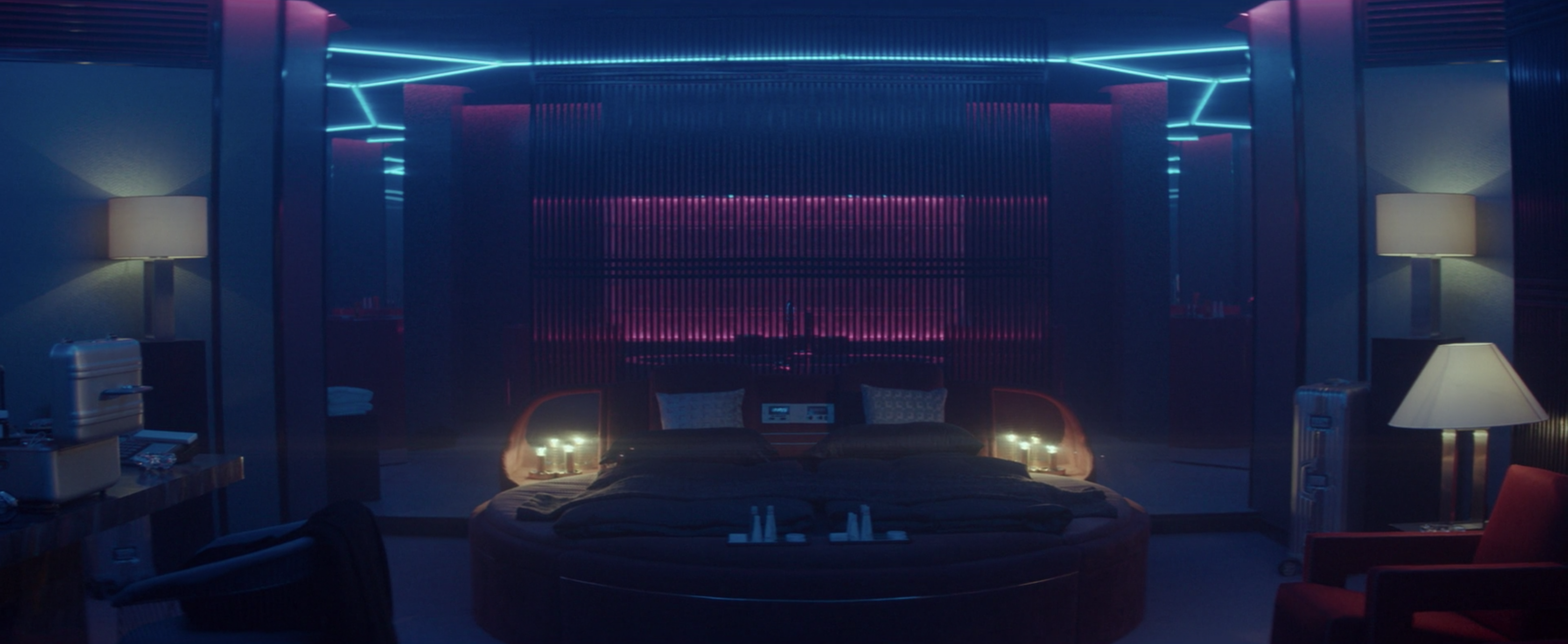
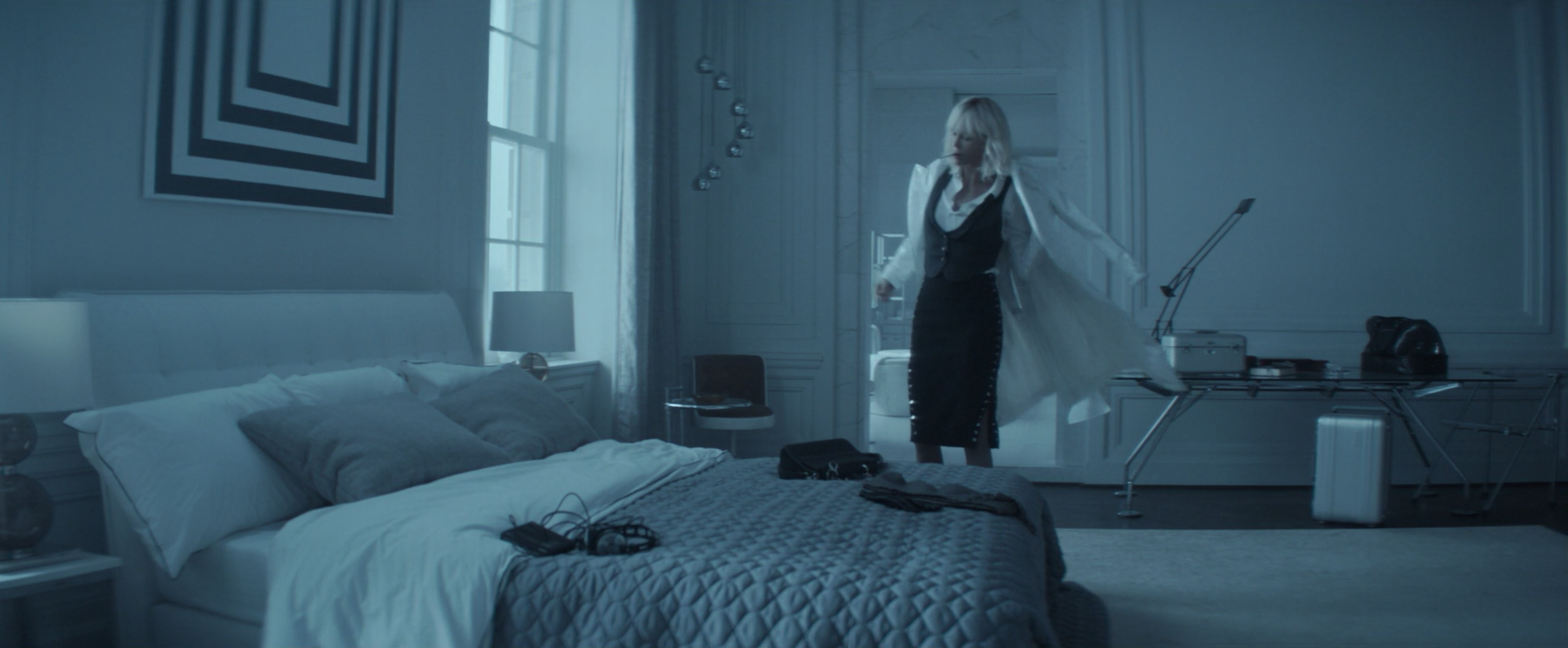
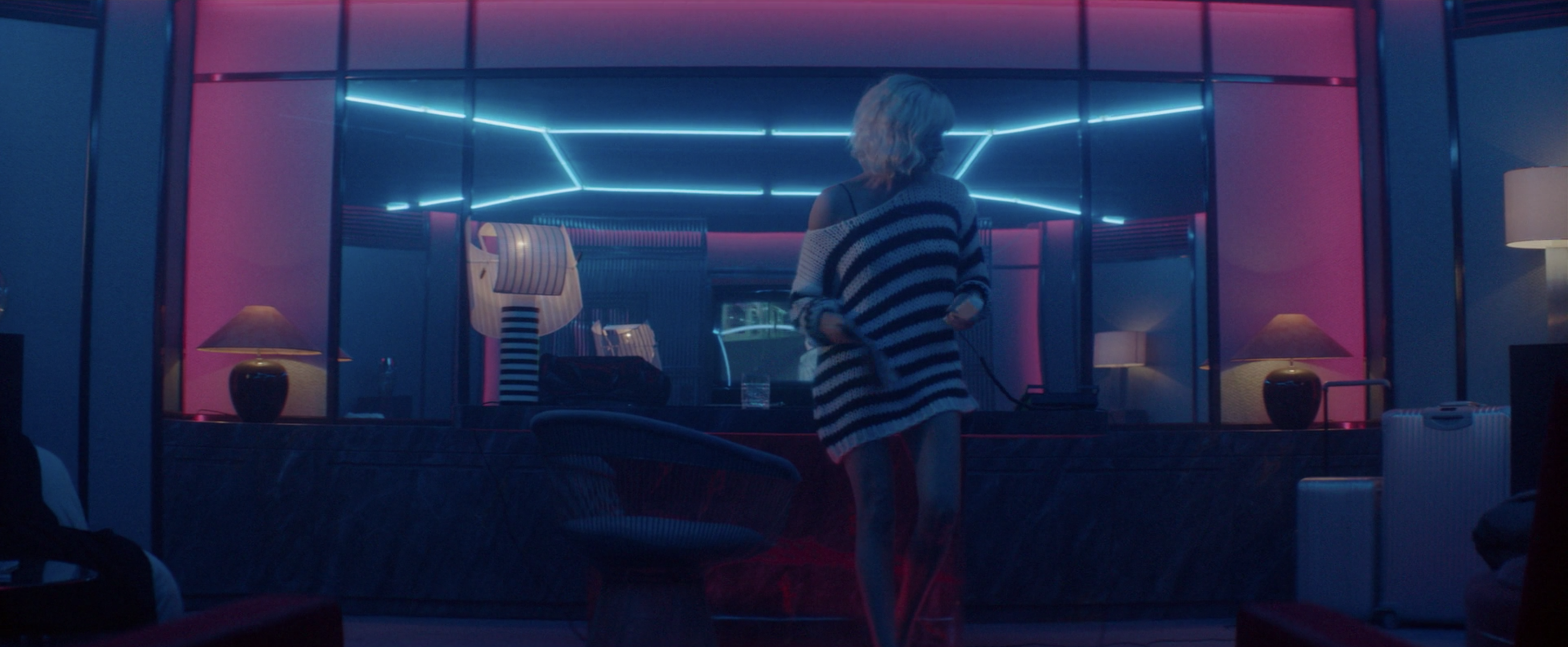
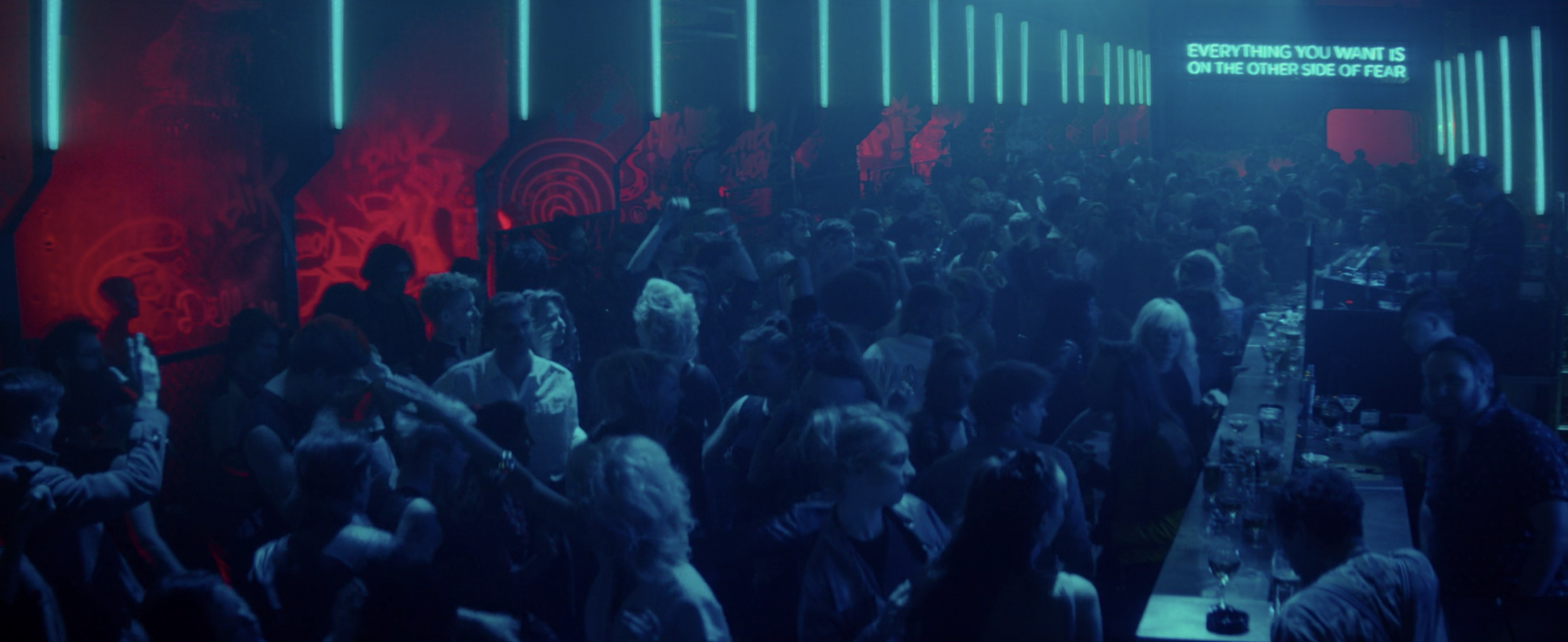
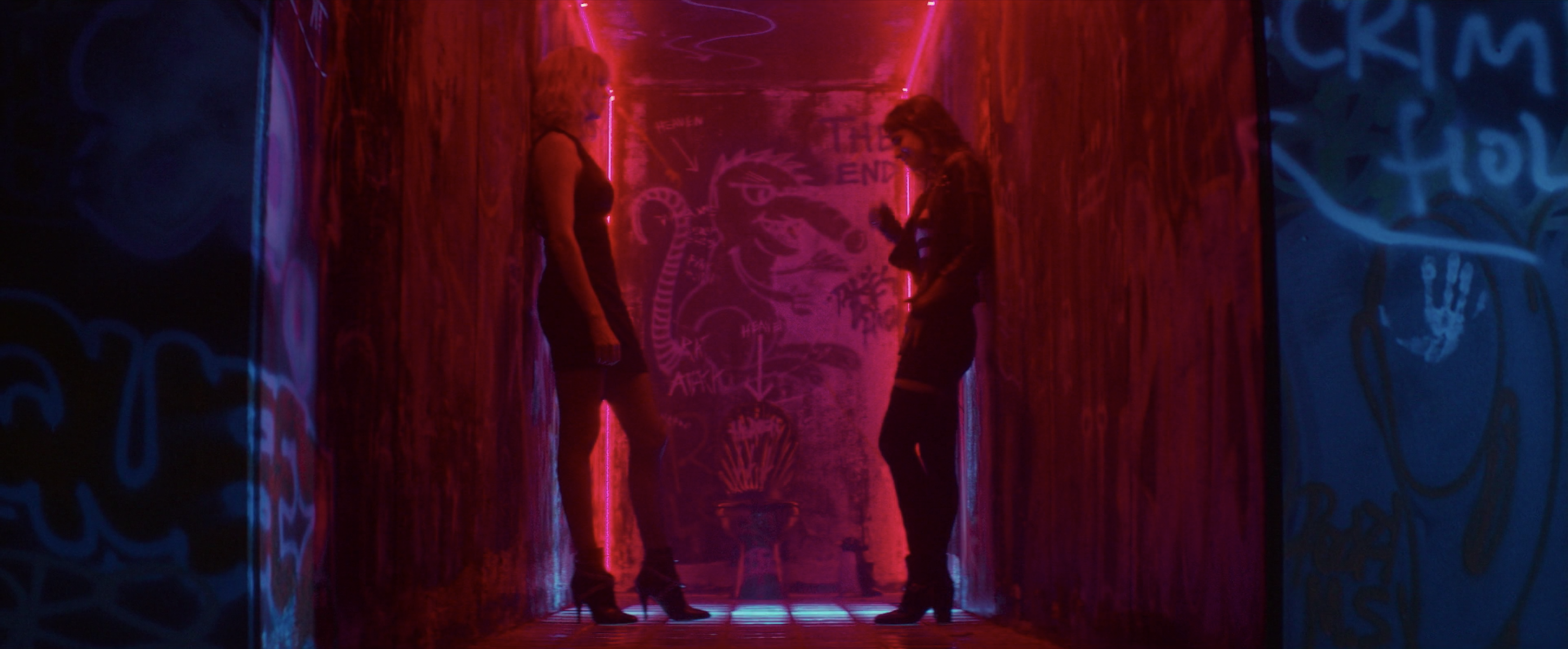
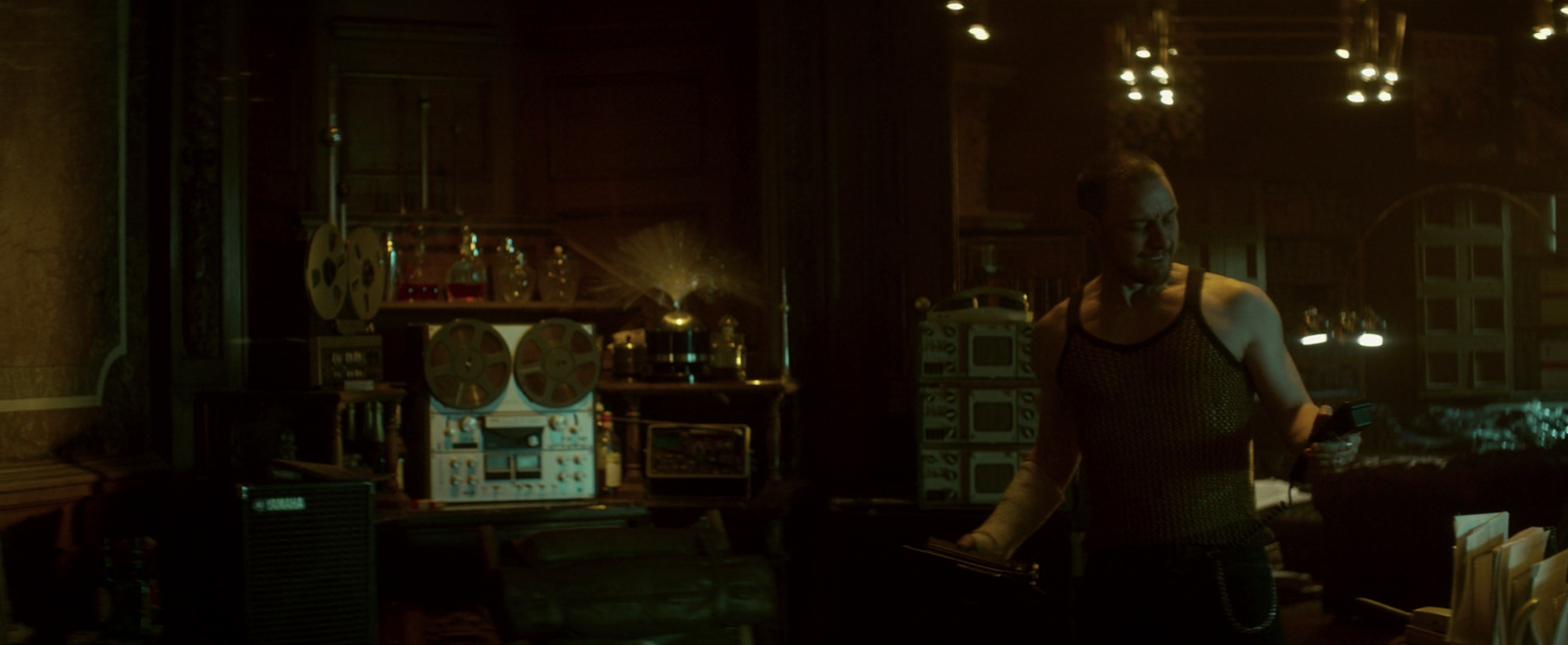
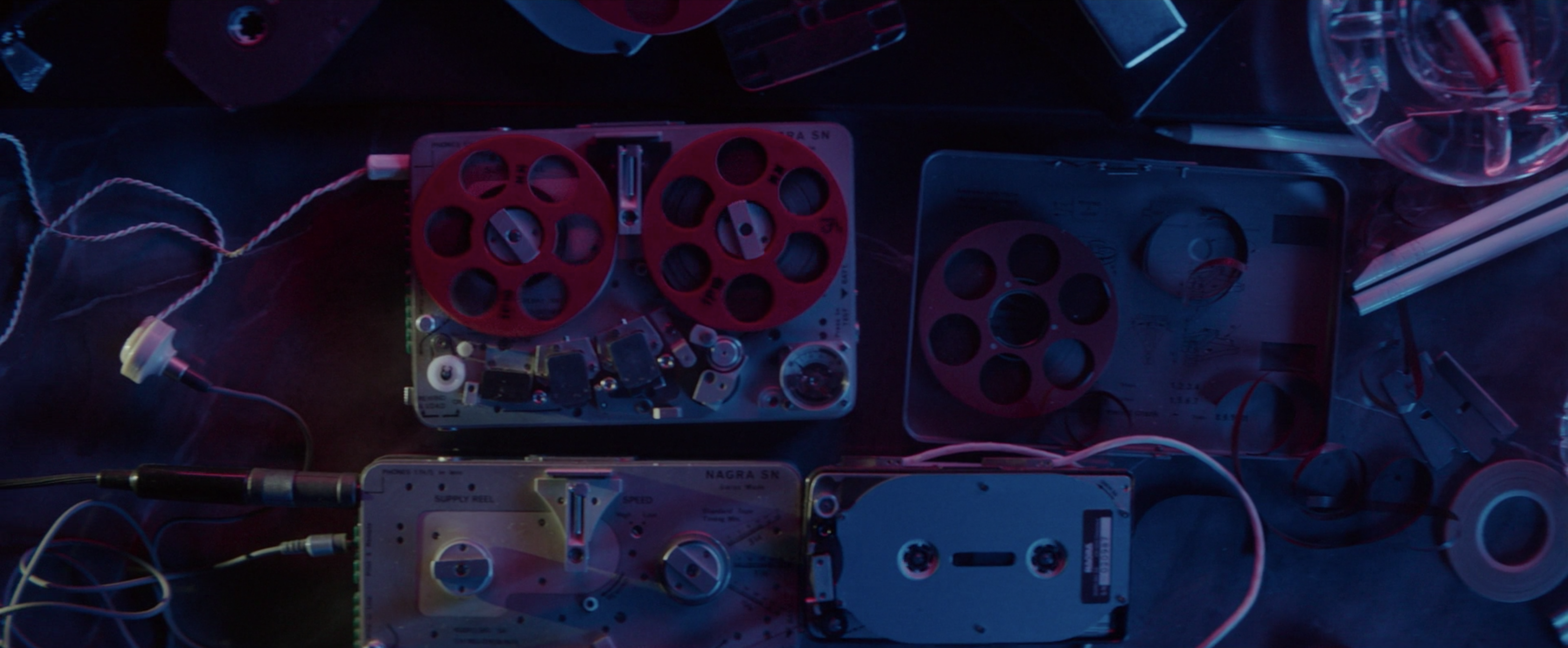
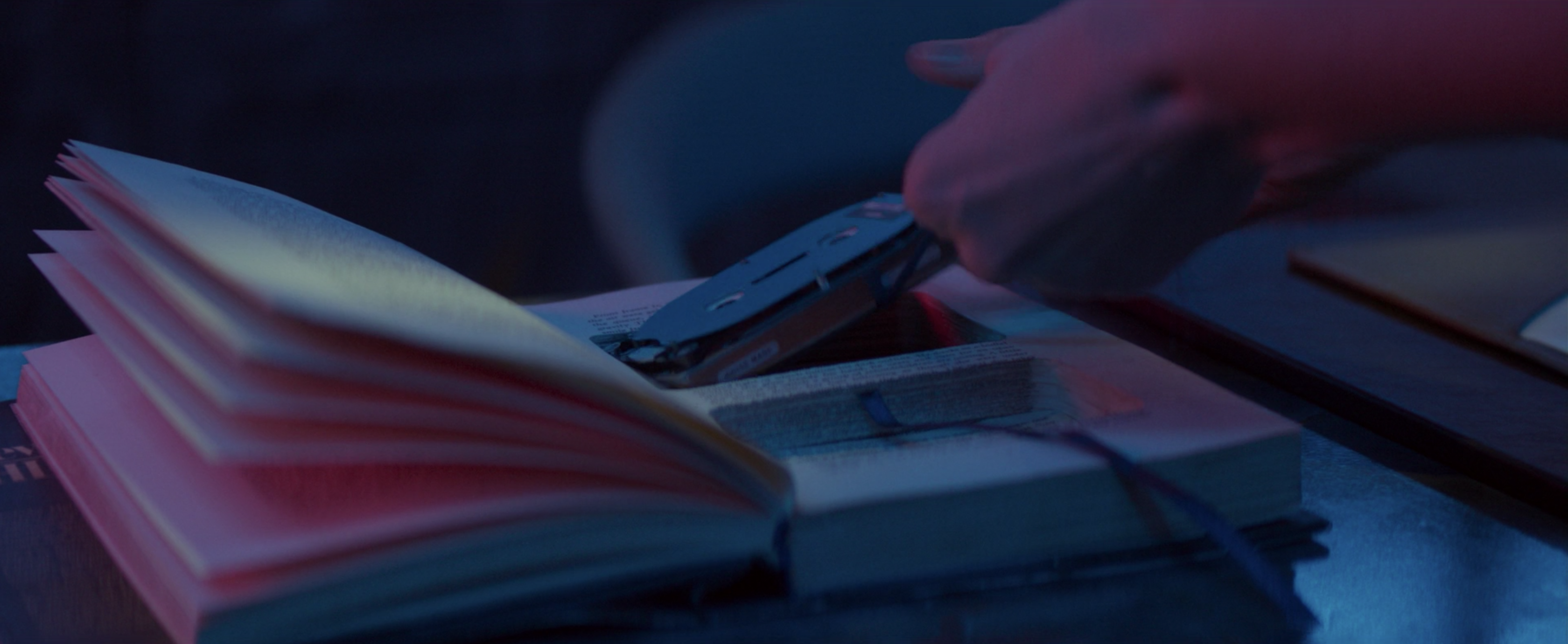
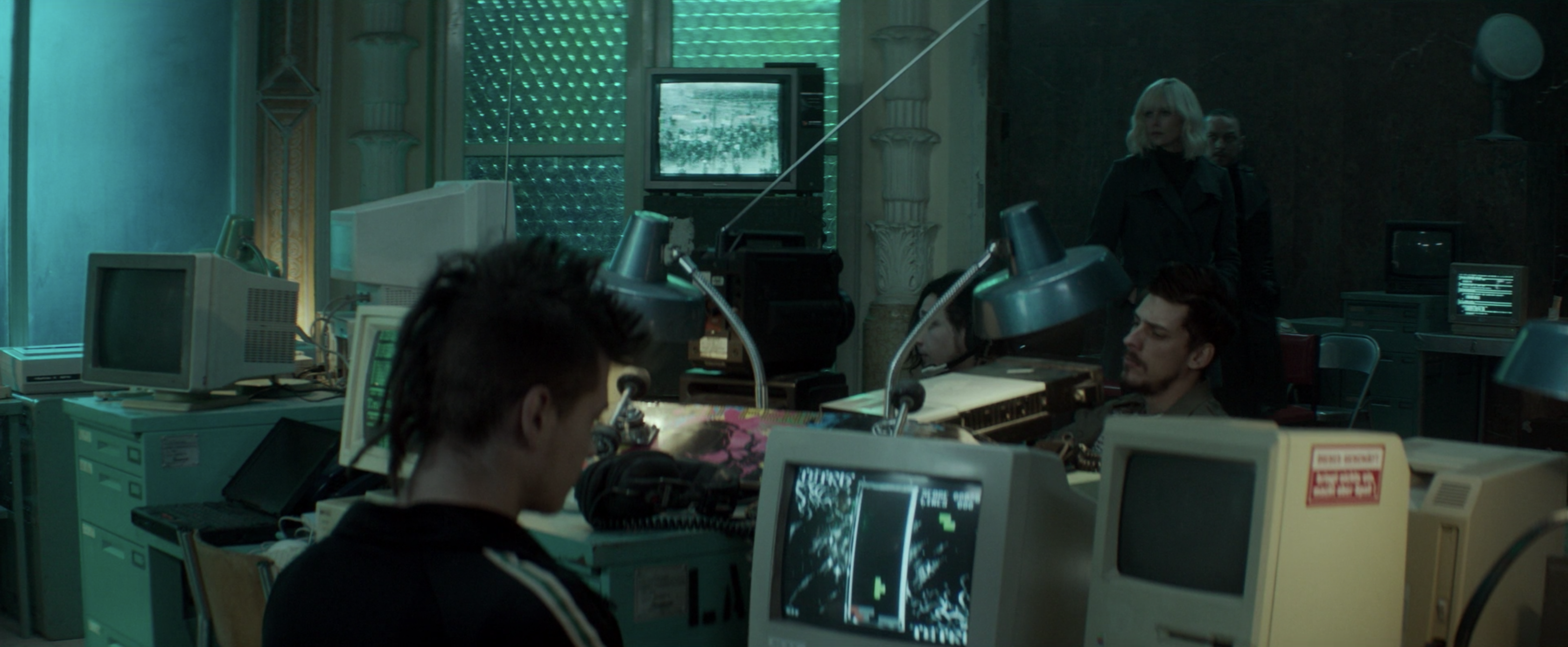
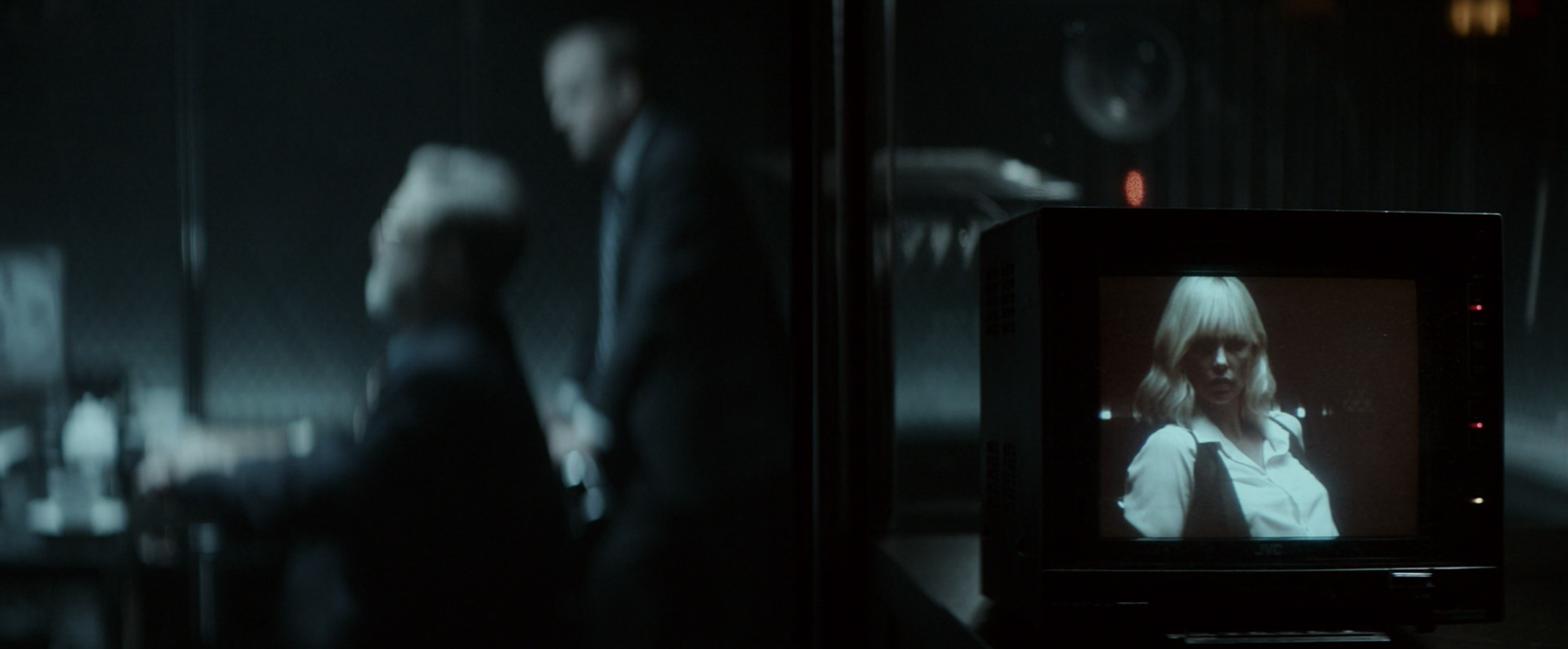
Reader Comments (5)
A sort of insight into The Post's first screening,pencil Meryl in for a 21st nom.
http://variety.com/2017/film/awards/oscars-steven-spielberg-the-post-meryl-streep-tom-hanks-1202618447/
If there is a God, Atomic Blonde will get multiple tech Oscar noms a la The Matrix.... at the very least I want it to get a nom for Costume Design and Art Direction.
Amazing writing and amazing eye as always, Daniel!
I love this series, Daniel. I always read and enjoy it. Thank you.
There were lots of clever conscious choices that I didn't realize were in Atomic Blonde. And you've articulated even more. The directors, design, production team, editor, really worked well together on this one.
The editing particularly impressed me. There seemed to be a bit of an assumption that since the fight scenes were long takes, no editing was necessary. But you've got to adjust the lead-in, the rhythm, the aftermath, and keep the total film in movement.
It could help me make the most of my nourishment and time alone. Eating carefully may help me know about sound nourishment and acknowledging sustenance.